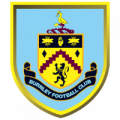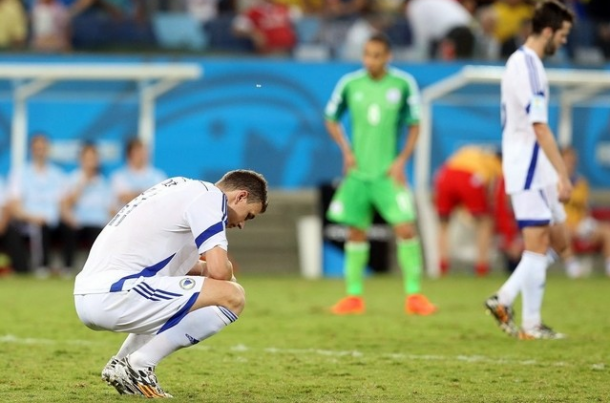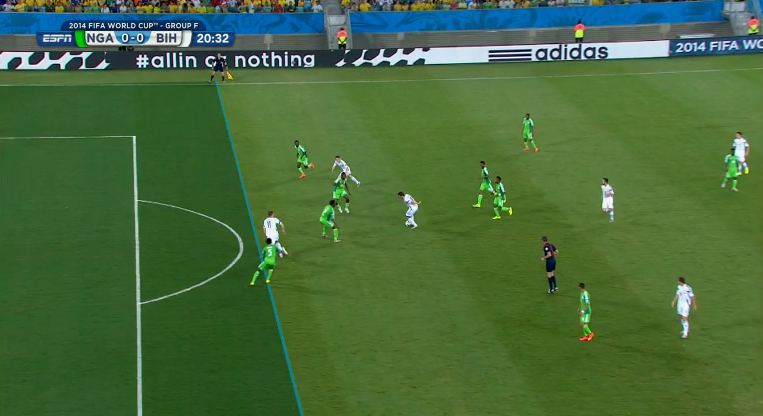A country plagued by war and political instability, Bosnia and Herzegovina made the headlines for all the right reasons during the past month as the National Team qualified for their first ever FIFA World Cup appearance in Brazil 2014. Football has historically been a sport that has allowed Bosnians to set aside the problems their country faces in the political spectrum and the 2014 World Cup exceeded those limits as national pride and euphoria was at an all-time high for the people of Bosnia and Herzegovina.
Known as the "Zmajevi" (Dragons), Safet Susic's men were drawn into Group F with Argentina, Iran and Nigeria. The group Bosnia was in showed a lot of promise as the country had its eyes on doing what Croatia did in 1998. Safet Susic was stuck in a dilemma going into the tournament, the manager was debating how to find the perfect balance of youth and experience at such a big stage. Not only was selection difficult, tactics and formation were just as tough for the former Paris Saint Germain star. The 4-4-2 which Bosnia deployed in the qualifiers was incredibly successful with the team scoring 30 goals, averaging 3 per match and striker tandem Edin Dzeko and Vedad Ibisevic combining for 18 of those 30 goals. However, Susic had to debate between costless-flowing, attacking football (4-4-2) and a conservative approach (4-5-1). Eventually, Safet Susic decided to go with the 4-5-1; a safer approach with less risks.
Match Reviews:
Bosnia opened up its World Cup campaign and debut at the historic Maracana in Rio de Janeiro against Lionel Messi and Argentina. For the people of Bosnia, it meant watching their National Team play at midnight. That was no problem, the occasion was too big to miss out on and millions had their eyes glued to the TV for the night. The match started with Argentina on the offensive and immediately taking the lead as Sead Kolasinac found the back of his own net when Lionel Messi's costless kick evaded everyone, but him. It was typical Bosnian style to concede in a such a manner; the National Team has seen enough bad luck in the past 15 years that this was almost expected to happen. As the match went on, Bosnia started to find their feet and threatened Sergio Romero's goal several times, but to no avail. It was most notably Senad Lulic whose fierce header forced Romero to make an outstretched save to keep it 1-0. Argentina offered little throughout the game, but saw their superstar Lionel Messi beat three Bosnian players and fire a shot that deflected off Mensur Mujdza and went in off the post, beating Asmir Begovic. Bosnia, again, had the shortest end of the straw in a football match. Safet Susic reacted by making three substitutions, hoping to offer a revamp to the rest of the squad that a comeback was still possible and indeed, it was as Senad Lulic found Vedad Ibisevic's run inside the box and the Stuttgart striker slotted it past Romero's legs for 2-1. It was Bosnia's biggest moment, scoring on their World Cup debut in the World's most popular stadium. Unfortunately, it was too little too late as the match ended 2-1, but offered much optimism for the upcoming match against Nigeria.
Bosnia entered the second match of their World Cup campaign full of hope after Nigeria played out an unconvincing 0-0 draw with Iran in their first match. Susic again elected to go 4-5-1, but it wasn't the usual 4-5-1; it was a 3-6-1, but it wasn't the usual 3-6-1, it was a three man defense consisting of two center-backs and one right-back. This left Senad Lulic and Emir Spahic with a tough job; playing two positions at once. Sead Kolasinac was the left back against Argentina, but Susic said he wasn't mentally prepared to play after the own goal against Argentina 'ruined' his confidence. Nonetheless, Bosnia focused on a positive result knowing that a loss would eliminate them from progressing further. Bosnia started off with defensive struggles down their left side, but it wasn't too much of a threat. Towards the middle of the first half, Zvjezdan Misimovic slipped Edin Dzeko in behind the Nigerian defense and the Manchester City striker slotted past Victor Enyeama for 1-0. However, the linesman and referee signalled for offside, no problem. Except it wasn't offside, Dzeko's entire body was onside. A shocking and controversial decision which turned even more sour when Peter Odemwingie beat Asmir Begovic after Emanuel Emenike seemed to have fouled Emir Spahic, the linesman said nothing and it was 1-0 to Nigeria instead of 1-0 to Bosnia. The match went on with Bosnia struggling to beat Nigeria's defense despite creating a record 20 chances throughout the match. The hard work looked to paid off in the 92nd minute when Edin Dzeko chested the ball and fired a volley at goal, which struck the post and went out of play. Another cruel ending for Bosnia, but it was even crueler that the match was stolen from them. The whole country felt like FIFA was obligated to do something about it, but they were powerless about something actually getting done. Bosnia's streak of misfortune as a country and team was on display once more as the Dragons waved goodbye to the hopes of entering the Round of 16.
In their final match, Bosnia faced Iran, who needed a win and Nigeria loss to progress to the Round of 16. Safet Susic elected to play 4-4-2 for the first time since the qualifications ended and it was the best decision he made all tournament. Bosnia were clearly in control of the match, dictating play and taking the lead thanks to Edin Dzeko's brilliant solo run which ended in his driven shot going in off the post a la Neymar - Croatia. Bosnia continued to pressure Iran's midfield and defense, which gave the Iranians no chance of scoring or testing Asmir Begovic. The second half continued the same tempo with Tino Sven Susic playing Miralem Pjanic through on goal and the Roma midfielder converted brilliantly for 2-0. Safet Susic's gameplan was clearly working and many began to wonder why it wasn't utilized against Argentina or Nigeria. As that question loomed, Iran pulled one back for 2-1 and their hopes were high for less than two minutes when Avdija Vrsaljevic sprinted past their defense on the counter and fired a fierce shot in off the post for 3-1. It was his first ever goal for Bosnia and his reaction was one of pure patriotism and emotion as he pointed to and kissed the Bosnian badge on his kit. While the tournament ended in disappointment and thoughts of what could have been, the win was as sweet as ever as Bosnia recorded their first ever World Cup win.
Best Players:
Muhamed Besic was Bosnia's standout player by far. The 21-year-old caught the attention of fans and clubs across the world and may very well have sold himself to a better club. Muhamed covers a lot of ground and presses a lot around the pitch (the type of midfielder Roberto Martinez wants in his team). He can tackle and his passing is quality for his age. He reads the game superbly and knows when it is the best time to move back into defence and intercept play. He has incredible stamina, moving up and down the pitch throughout the 90 minutes. He is also very fast, reaching a top speed of 31.2km/h during the tournament (EPL Index). Another in-demand midfielder, Miralem Pjanic, also had a fantastic World Cup as he took on a deep lying playmaker role for the National Team and created eight chances alone against Nigeria. The Roma man was Bosnia's most dangerous man on the ball and was full of energy, like Besic.
Worst Players:
Perhaps worst is too harsh of a word, so let's go with most disappointing. The captain, Emir Spahic, wins that award as he looks very nervous and uncomfortable throughout the tournament and never more so than against Nigeria where he struggled to contain Emenike and Nigeria's attack. Spahic has always been a warrior for the National Team and his courage and bravery made up for his average ability. However, Spahic's biggest problem and enemy was always himself; when he was needed more than ever, he was the hardest to find (France - EURO 2012 and 2014 World Cup). Another disappointment was Edin Dzeko, Bosnia's all time leading scorer was supposed to be the focal point of Bosnia's success, he was supposed to put the country on his back and lead us to a good tournament. However, Edin Dzeko wasn't able to do that playing in an unfamiliar role of lone striker and he didn't look up to the challenge against Nigeria or Argentina. While Dzeko did make his mark against Iran, it was too little too late for the Manchester City striker who had already let down so many people.
Biggest Mistakes:
Safet Susic could only do so much when sending the players out, but perhaps he could have done better when sending the players out. Playing a 4-5-1 was a bold decision given the success Bosnia had experienced with the 4-4-2 and that was on display. However, we can put that aside and admit we could've progressed past the group stage had Susic opted to play Kolasinac against Nigeria. While he says Kolasinac wasn't mentally prepared for the match, the manager shouldn't have given an injured Emir Spahic the job of playing two positions.
What's Next?:
EURO 2016 in France will be Bosnia's next goal and it should be easily achieved considering their qualification group isn't too tough and the new UEFA rules allows second place to qualify directly and third place to go to the playoffs. That being said, you can bet on Bosnia participating in France come 2016. The spectacle will be made much more interesting given the fact that Safet Susic made his mark as a player in France, playing for PSG. Susic was named PSG's best player of all-time and it could be the perfect chance for him to get revenge against France after the controversial 1-1 draw in Paris during EURO 2012 qualification.
The closer we get to EURO 2016, the bigger the problem that an aging squad looms. Many of those who participated in Bosnia's World Cup will either be too old or making their final appearances for the National Team during that tournament. Susic has vowed to bring in younger talent to give the squad a revamp and fresh breeze.
Verdict - Success or Failure?:
Half of the country will say success and half will say failure because for some, it is enough to qualify and participate in the tournament while for others, they are two separate things. Personally, I will say it was a success even though we didn't progress as far as we hoped. The reason I say that is because we laid down a solid foundation for the future of the National Team, we did the tough work for them and as major tournaments continue to expand, the likelihood of qualifying keeps rising as the years go by. Not only will we be regulars at these tournaments, but we will also attract youth talents that were torn between playing for the country they grew up in and the country they're from.










































